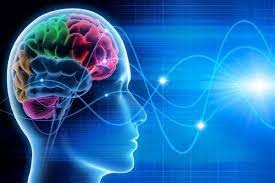The Impact of Yoga on the Brain: How This Ancient Practice Transforms the Mind
Yoga, an ancient art of harmonizing body and mind, has been practiced across cultures for thousands of years. But did you know that yoga doesn’t just benefit the body—it also has remarkable effects on the brain? Scientific studies have shown that yoga practices, from mindful breathing to physical postures and meditation, can enhance brain structure and function. These effects make yoga a powerful tool for boosting awareness, reducing stress, and improving mental well-being.
Reducing Stress and Increasing Relaxation
One of the most significant impacts of yoga on the brain is its ability to lower stress levels. When you practice yoga, your body produces less cortisol, the stress hormone. This reduction is linked to the activation of the parasympathetic nervous system, which promotes relaxation. Research has found that yoga breathing exercises, such as deep abdominal breathing, calm the mind and decrease activity in the amygdala—the brain region responsible for emotional responses like fear. This process helps us stay calmer and more focused amidst daily pressures.
Increasing Gray Matter Volume and Strengthening the Brain
Yoga also supports brain growth and resilience. Brain imaging studies reveal that regular yoga practice can increase gray matter volume in areas like the hippocampus and prefrontal cortex. The hippocampus is crucial for memory and learning, while the prefrontal cortex is tied to self-awareness, decision-making, and emotion regulation. These changes suggest that yoga not only soothes the mind but also enhances our cognitive abilities.
The Effect of Meditation on the Default Mode Network
Meditation, a core component of yoga, offers another profound effect on the brain. During focused relaxation, your brain waves shift to alpha or theta states, which are associated with deep calm and creativity. This shift strengthens the brain’s default mode network, active during rest and linked to self-reflection and self-awareness. As a result, yoga helps us gain a deeper understanding of our inner selves.
Conclusion
In conclusion, yoga serves as a bridge between body and mind, with effects on the brain that modern science can now measure. From reducing stress and boosting memory to enhancing focus and self-awareness, this ancient practice proves it can transform modern life. If you’re seeking a natural way to strengthen your brain, perhaps it’s time to give yoga a try.
Keywords: yoga, brain, stress, self-awareness, memory, meditation, mental health






